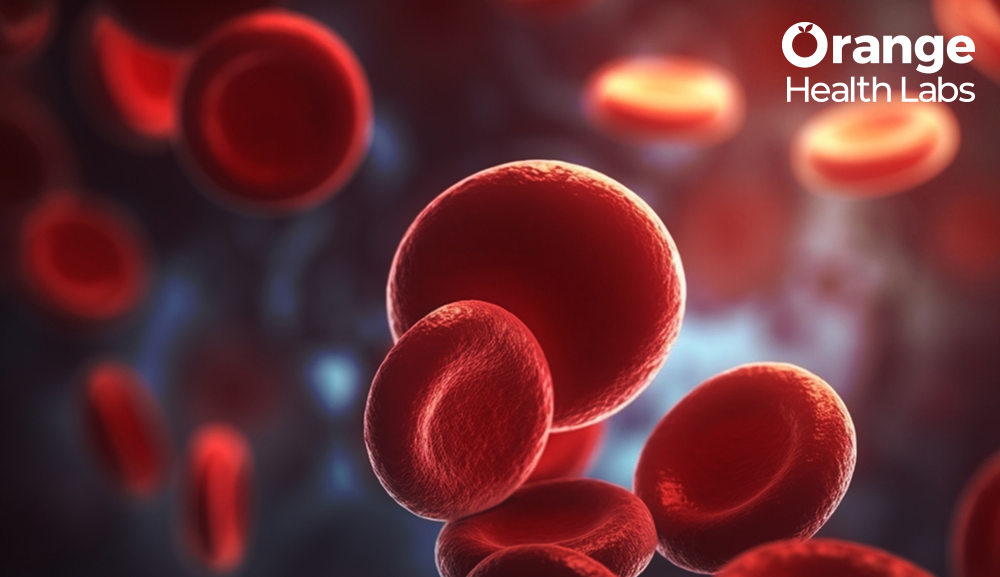Search for tests or checkups
SupportHow Hepatitis B Affects Liver Health and the Role of HBsAg Testing
What Is Hepatitis B Infection?
Hepatitis B is a viral infection caused by the hepatitis B virus (HBV) that primarily targets the liver. As of 2022, around 254 million people live with chronic hepatitis B, with 1.2 million new cases annually. The virus spreads through contact with infected body fluids, including blood, semen, and vaginal fluids, with common transmission routes being:
- Mother-to-child transmission at birth
- Contact with infected blood
- Needlesticks or contaminated needles
- Sexual contact
Acute vs. Chronic Hepatitis B
Hepatitis B can be acute (short-term) or chronic (long-term). Chronic hepatitis B may lead to severe liver damage over time, often without noticeable symptoms, and may cause cirrhosis or liver failure.
Symptoms of Hepatitis B
Hepatitis B symptoms range from mild to severe, with some individuals showing no symptoms at all. Common symptoms include:
- Fever
- Loss of appetite
- Nausea and vomiting
- Abdominal pain
- Weakness and fatigue
- Joint pain
Severe Symptoms
In serious cases, symptoms like jaundice (yellowing of the skin and eyes), dark urine, pale stools, and abdominal or limb swelling may indicate significant liver damage. Chronic hepatitis B can remain asymptomatic for years, leading to severe liver issues if not addressed.
Impact of Hepatitis B on Liver Health
The hepatitis B virus (HBV) infects liver cells and can cause both acute and chronic liver diseases:
- Initial Infection: HBV attaches to liver cells, releasing genetic material that replicates within these cells.
- Inflammation: The immune response to HBV infection leads to inflammation, a characteristic feature of hepatitis B, causing liver tissue damage.
- Chronic Infection: HBV may evade the immune system, persisting in the body and causing chronic infection. The virus can integrate its DNA into liver cells, leading to continuous liver damage.
- Liver Cell Stress: HBV induces harmful molecules called reactive oxygen species (ROS), leading to cell damage and death. Over time, this can result in cirrhosis, where scar tissue replaces healthy liver tissue.
Chronic HBV infection increases the risk of:
- Cirrhosis: Replacement of healthy liver tissue with scar tissue, impairing liver function.
- Chronic Liver Failure: Progression to liver failure, which may require a transplant.
- Liver Cancer: Chronic HBV infection significantly raises the risk of liver cancer.
The Importance of HBsAg Testing
HBsAg (Hepatitis B surface Antigen) is a protein on the HBV surface. Its presence indicates an active hepatitis B infection. The HBsAg test helps diagnose hepatitis B, determine the infection stage, and guide treatment.
HBsAg Test Results
- Positive Result: Indicates an active hepatitis B infection, detectable as early as 1 week and up to 9 weeks after exposure.
- Negative Result: Suggests no current infection, typically turning negative 15 weeks after symptoms appear in those who recover.
For those concerned about liver health, the HBsAg (ECLIA) test in Bangalore provides a convenient way to assess active infections.
Benefits of Early Detection
If you suspect hepatitis B, early detection through HBsAg testing is essential. Early detection enables timely monitoring and treatment, reducing the risk of complications and preventing virus transmission.
Management of Hepatitis B
Effective management of hepatitis B helps maintain liver health and prevent severe complications:
- Prophylactic Treatment: If recently exposed, immediate action is vital. A doctor may administer the hepatitis B vaccine within 24 hours and hepatitis B immune globulin (HBIG) to prevent infection.
- Acute Infection: Most cases don’t need specific treatment, but supportive care may be provided for severe cases.
- Chronic Infection: Chronic hepatitis B management involves regular liver health monitoring and treatments like immune modulators or oral antivirals to control the virus. Lifestyle changes, such as avoiding alcohol and eating a balanced diet, are also important.
- Surgery: Severe liver damage or cancer due to hepatitis B may require surgery or a liver transplant.
Book Your Hbsag Test in Your City: HBsAg Test in Delhi | HBsAg Test in Bangalore | HBsAg Test in Noida | HBsAg Test in Mumbai | HBsAg Test in Hyderabad | HBsAg Test in Gurgaon
Preventive Measures for Hepatitis B
To protect yourself and others from hepatitis B, consider these preventive measures:
- Get Vaccinated: The hepatitis B vaccine is safe, effective, and recommended for nearly everyone.
- Pregnancy Testing: Pregnant individuals should be tested to prevent transmission to their baby.
- Family Testing: Test and vaccinate family members as needed.
- Protect Newborns: Ensure babies receive the hepatitis B vaccine and, if necessary, HBIG shortly after birth.
Conclusion
Understanding hepatitis B and its impact on liver health is essential for effective management and prevention. Early detection with HBsAg testing and prompt treatment can improve health outcomes and reduce severe complications. By following preventive measures and seeking regular medical care, individuals can manage hepatitis B effectively and maintain their overall health. The HBsAg (ECLIA) at-home test provides a convenient way to monitor your health and ensure timely intervention.

How Often Should You Get Tested for STDs?

Top Regular Checkups And Tests You Shouldn’t Miss
